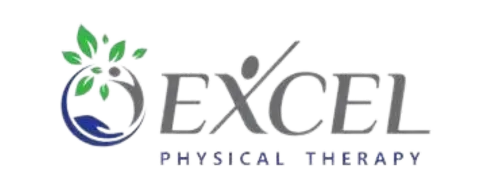What’s a Frozen Shoulder?
In simple terms, frozen shoulder results due to shoulder capsule inflammation and fibrotic adhesions that reduce your shoulder movement and lead to shoulder pain.
Symptoms of Frozen Shoulder
Frozen shoulder has a distinctive symptom pattern that results in severe shoulder pain, at least 25% decrease in shoulder range of motion in at least two directions (usually shoulder abduction and external rotation), reduced shoulder function, and eventually significant shoulder stiffness. The disability that results from frozen shoulder can be serious and frozen shoulder typically worsens over time if it’s left untreated. Unfortunately, frozen shoulder is often misdiagnosed as rotator cuff injury; however, it is imperative that you receive a correct diagnosis of frozen shoulder because management of this condition differs from the management of other shoulder conditions.
Therefore, an incorrect diagnosis can be detrimental to your recovery, resulting in prolonged symptoms.
Causes of Frozen Shoulder
While there are varying theories as to the underlying cause of frozen shoulder, the precise underlying cause remains unknown. An inflammatory process may be involved in this condition, and sometimes frozen shoulder occurs due to shoulder immobilization for a lengthy period of time due to injury, illness, or surgery.
While the exact cause remains unknown, frozen shoulder is categorized as either:
1) Primary, if symptom onset is spontaneous and the cause is unknown, or
2) Secondary, if symptoms are the result of a known cause. Subcategories of secondary frozen shoulder include systemic (metabolic conditions such as diabetes), extrinsic (cervical disc disease, cardiopulmonary disease, humerus fracture, Parkinson’s disease), and intrinsic (biceps tendinitis, rotator cuff disorders, calcific tendinitis, arthritis of the AC joint)
Treatment Strategy
In the majority of cases, the condition can be successfully treated, although full recovery takes a significant amount of time and energy.
Stages of Frozen Shoulder
Frozen shoulder is divided into three distinct stages, with each stage presenting with different symptoms.
Stage 1: Freezing
This stage is characterized by a gradual onset of pain around the shoulder joint initially. The pain may occur at rest and sharp bouts of pain may be felt with extreme range of motion, as well as pain at night that interferes with sleep. This is followed by a progression of decreased shoulder range of motion. This is known as the “RED” phase (the color of the capsule visualized during arthroscopic surgery). This stages usually lasts between 3 and 9 months.
Stage 2: Frozen
In this stage there is minimal shoulder pain, with a progressive loss of shoulder range of motion. Pain is typically only apparent with extreme range of motion. This is known as the “PINK” phase (the colour of the capsule visualized during arthroscopic surgery). This phase can occur at approximately 4 months and can last until 12 months.
Stage 3: Thawing
This stage is characterized by a gradual return of shoulder range of motion combined with some shoulder weakness due to shoulder disuse. This is known as the “WHITE” phase (the color of the capsule visualized during arthroscopic surgery). This phase can last between 1 and 3.5 years.
Typically, if you suffer with frozen shoulder you may experience problems with certain activities such as:
– Inability to reach over shoulder level
– Inability to throw a ball
– Inability to reach behind your back or to reach to your side and behind
– Inability to sleep on your affected side
Physical Therapy Treatment for Frozen Shoulder
Physical therapy is a conservative treatment option that can help to reduce your frozen shoulder symptoms and help you regain normal functioning of your shoulder joint. Treatment options include patient education, joint mobilization, stretching, and strengthening exercises. Research has found that up to 89.5% of patients with frozen shoulder respond favorably to conservative treatment. Positive outcomes reported include reduced symptoms, increased shoulder range of motion, and improved function.
Physical therapy treatment is tailored to each person’s condition, and treatment options depend on the stage of the condition.
One of the most important parts of physical therapy is patient education as it is essential that patients be given adequate and accurate information to help reduce their frustration and improve treatment compliance. It should be emphasized that while full range of motion may never completely recover, the condition will improve with time.
Stage 1
For patients in the freezing stage (stage 1), treatment focuses on pain relief, including gentle mobilization of the shoulder, release of muscles, acupuncture, and kinesiology taping. During this phase it is crucial to be conservative so that the condition is not aggravated. It is also important that the patient be advised to avoid activities that may irritate their condition, such as reaching overhead or lifting heavy items.
Stage 2
For patients in the frozen stage (stage 2), treatment focuses on regaining shoulder range of motion and strength with the goal of increasing shoulder function. Treatment includes shoulder joint mobilization, muscle release techniques, acupuncture and stretching to increase range of motion.
Stage 3
For patients in the thawing stage (stage 3), treatment focuses on joint mobilization and stretching, combined with strengthening exercises, to help regain full shoulder range of motion and strength.
It’s important to remember that aggressive treatment can actually aggravate the shoulder capsule, and subsequently increase symptoms such as pain and stiffness. Manual techniques, such as shoulder joint mobilization and stretching should only be progressed as the patients’ irritability reduces.
Finding an experienced physical therapist can make a world of difference in treatment outcomes for frozen shoulder.
If you’re suffering from symptoms of frozen shoulder, Excel Physical Therapy provides physical therapy in Lodi, California and we can help to properly assess and treat your symptoms helping you regain shoulder function and eliminate your pain. Give us a call at 209-207-0849 to speak with a licensed Physical Therapist in Lodi, CA and book your shoulder assessment.



